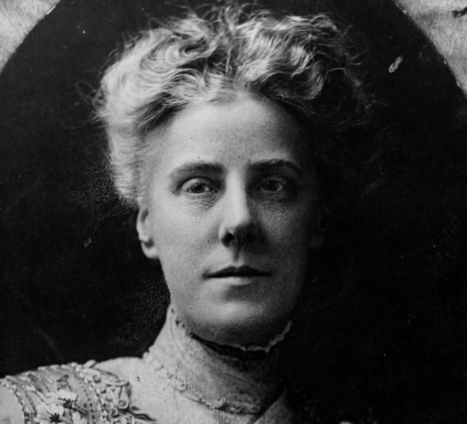The woman responsible for the creation of Mother's Day, marked in the many countries on the second Sunday in May, would have approved of the modest celebrations likely to take place this year. The commercialisation of the day horrified her - to the extent that she even campaigned to have it rescinded.
When Elizabeth Burr received a phone call a few days ago from someone asking about her family history, she initially thought she had been scammed. "I thought, 'OK, my identity has been stolen, I'll never see my money again,'" she says.
In fact the call came from a family history researcher looking for living relatives of Anna Jarvis, the woman who founded Mother's Day in the US over a century ago.
Anna Jarvis was one of 13 children, only four of whom lived to adulthood. Her older brother was the only one to have children of his own, but many died young from tuberculosis and his last direct descendant died in the 1980s.
So Elizabeth Zetland of MyHeritage decided to look for first cousins, and that was what led her to Elizabeth Burr.
When Elizabeth had been reassured that her savings were safe, she gave MyHeritage the surprising news that her father and aunts hadn't celebrated Mother's Day when they were growing up - out of respect for Anna, and her feeling that her idea had been hijacked by commercial interests and debased.

Anna Jarvis's campaign for a special day to celebrate mothers was one she inherited from her own mother, Ann Reeves Jarvis.
Mrs Jarvis had spent her life mobilising mothers to care for their children, says historian Katharine Antolini, and she wanted mothers' work to be recognised. "I hope and pray that someone, sometime, will found a memorial mothers' day commemorating her for the matchless service she renders to humanity in every field of life. She is entitled to it," Mrs Jarvis said.
She was very active in the Methodist Episcopal Church, where, from 1858, she ran Mothers' Day Work Clubs to combat high infant and child mortality rates, mostly due to diseases that ravaged their community in Grafton, West Virginia.
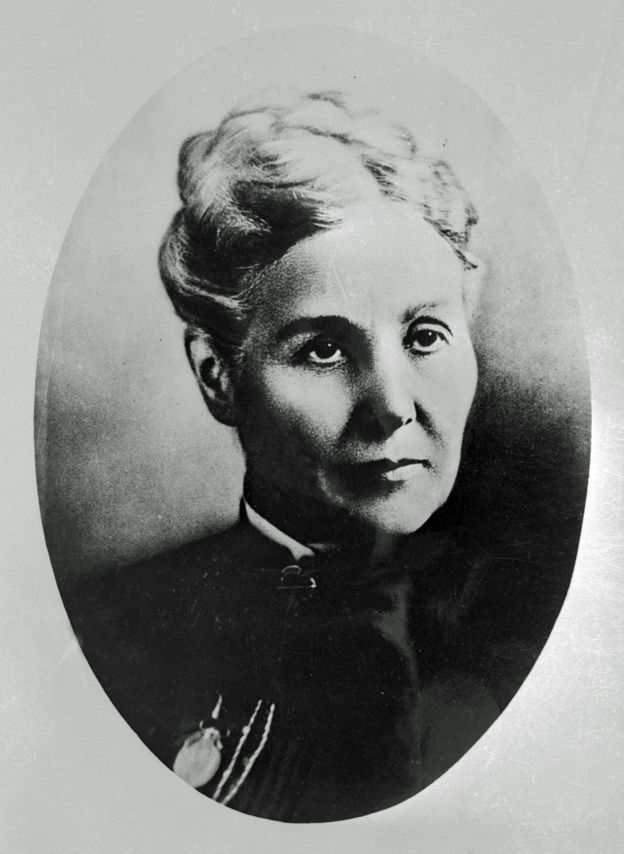
In the work clubs mothers learned about hygiene and sanitation, such as the vital importance of boiling drinking water. The organisers provided medicine and supplies to sick families and, when necessary, quarantined entire households to prevent epidemics.
Mrs Jarvis herself lost nine children, including five during the American Civil War (1861-1865) who most likely succumbed to disease, says Antolini, a professor at West Virginia Wesleyan College.
When Mrs Jarvis died in 1905, surrounded by her four surviving children, a grief-stricken Anna promised to fulfil her mother's dream, though her approach to the memorial day was quite different, Antolini says.
Whereas Mrs Jarvis wanted to celebrate the work done by mothers to improve the lives of others, Anna's perspective was that of a devoted daughter. Her motto for Mother's Day was "For the Best Mother who Ever Lived—Your Mother." This was why the apostrophe had to be singular, not plural.
"Anna envisioned the holiday as a home-coming, a day to honour your mother, the one woman who dedicated her life to you," says Antolini.
Mother's Day or Mothering Sunday?
- In the UK the fourth Sunday in Lent has long been celebrated as Mothering Sunday - originally a day when people who had left home returned to their "mother church" and were reunited with their parents
- A movement to revive Mothering Sunday traditions was launched in 1920 by a Nottinghamshire woman, Constance Penswick Smith, out of concern that the secular US Mother's Day would displace the Christian Mothering Sunday
- Anna Jarvis's chosen day, the second Sunday in May has been adopted by many countries, but a wide variety of other dates are also used around the world
This message was something everyone could get behind, and also appealed to churches - Anna's decision to have the holiday on a Sunday was a smart move, says Antolini.
Three years after Mrs Jarvis's death, the first Mother's Day was celebrated in the Andrews Methodist Church in Grafton - Anna Jarvis chose the second Sunday in May because it would always be close to 9 May, the day her mother had died. Anna handed out hundreds of white carnations, her mother's favourite flower, to the mothers who attended.
The popularity of the celebration grew and grew - the Philadelphia Enquirer reports that soon you could not "beg, borrow or steal a carnation". In 1910 Mother's Day became a West Virginia state holiday and in 1914 it was designated a national holiday by President Woodrow Wilson.
A huge factor in the day's success was its commercial appeal. "Even though Anna never wanted the day to become commercialised, it did very early. So the floral industry, greeting card industry and candy industry deserve some of the credit for the day's promotion," says Antolini.
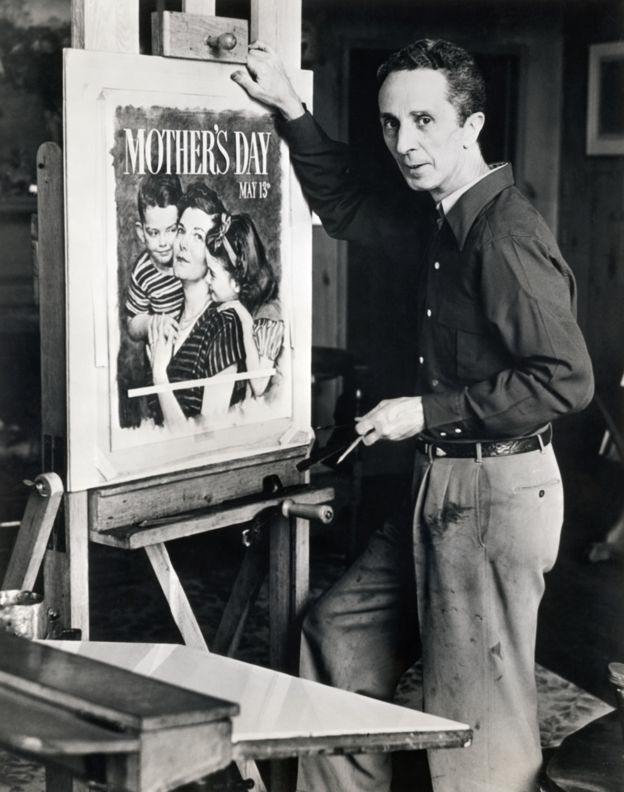
But this was absolutely not what Anna wanted.
When the price of carnations rocketed, she released a press release condemning florists: "WHAT WILL YOU DO to rout charlatans, bandits, pirates, racketeers, kidnappers and other termites that would undermine with their greed one of the finest, noblest and truest movements and celebrations?" By 1920, she was urging people not to buy flowers at all.
She was upset with any organisation that used her day for anything but her original, sentimental, design, says Antolini. This included charities that used the holiday for fund-raising, even if they meant to help poor mothers.
"It was a day meant to celebrate mothers, not pity them because they were poor," explains Antolini. "Plus some charities were not using the money for poor mothers like they claimed."
Mother's Day was even dragged into the debate over women's votes. Anti-suffragists said that a woman's true place was in the home and that she was too busy as a wife and mother to be involved in politics. For their part, suffrage groups would argue, "If she is good enough to be the mother of your children, she is good enough to vote." And they stressed the need for women to have a say in the future well-being of their children.
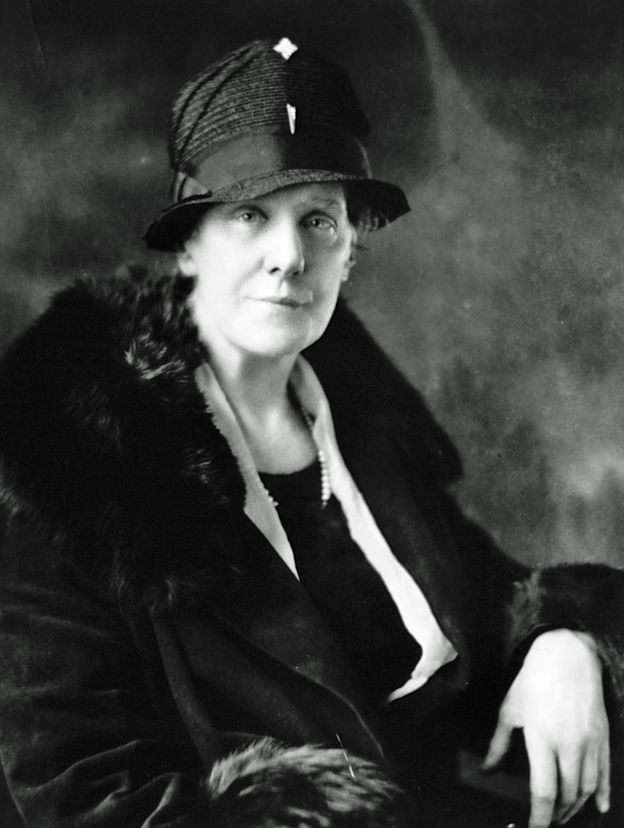
The only one not to take advantage of Mother's Day, it seems, was Anna herself. She refused money offered to her by the florist industry.
"She never profited from the day and she could easily have done so. I admire her for that," says Antolini.
Anna and her sister Lillian, who was visually impaired, survived on the inheritance from their father and their brother Claude, who ran a taxi business in Philadelphia before dying of a heart attack.
But Anna went on to spend every penny fighting the commercialisation of Mother's Day.
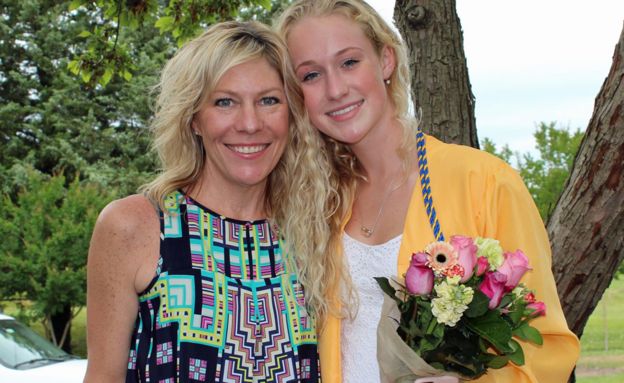
Even before it became a national holiday she had claimed copyright on the phrase "Second Sunday in May, Mother's Day", and threatened to sue anyone who marketed it without permission.
"Sometimes groups or industries would purposely use the possessive plural spelling 'Mothers' Day' in order to get around Anna's copyright claims," says Antolini. A Newsweek article written in 1944 claimed she had 33 pending lawsuits.
By then she was 80 and almost blind, deaf and destitute, and being cared for in a sanatorium in Philadelphia. There have long been claims that the floral and card industries secretly paid for Anna Jarvis's care, but Antolini has never been able to verify this. "I would like to think that they did, but it just may be a good story and not true," she says.
One of Anna's final acts, while still living with her sister, was to go door-to-door in Philadelphia asking for signatures to back an appeal for Mother's Day to be rescinded. Once she had been admitted to the sanatorium, Lillian soon died of carbon monoxide poisoning while trying to heat the run-down house. "Police claimed that icicles hung from the ceiling because it was so cold," says Antolini. Anna herself died of heart failure in November 1948.

Jane Unkefer, 86, another of Anna's first cousins (and Elizabeth Burr's aunt), thinks Anna Jarvis became obsessed with her anti-commercialisation crusade.
"I don't think they were very wealthy, but she totally ran through whatever money she had," she says.
"It's embarrassing. I wouldn't want people to think the family wasn't caring for her, but she ended up in the equivalent of a pauper's grave."
They may not have been able to help her at the end of her life, but the family did honour Anna's memory in another way - by not celebrating Mother's Day for several generations.
"We really didn't like Mother's Day," says Jane Unkefer. "And the reason we didn't is that my mother, as a child, had heard a lot of negative things said about Mother's Day. We acknowledged it as a nice sentiment, but we didn't go in for the fancy dinner or the bouquets of flowers."
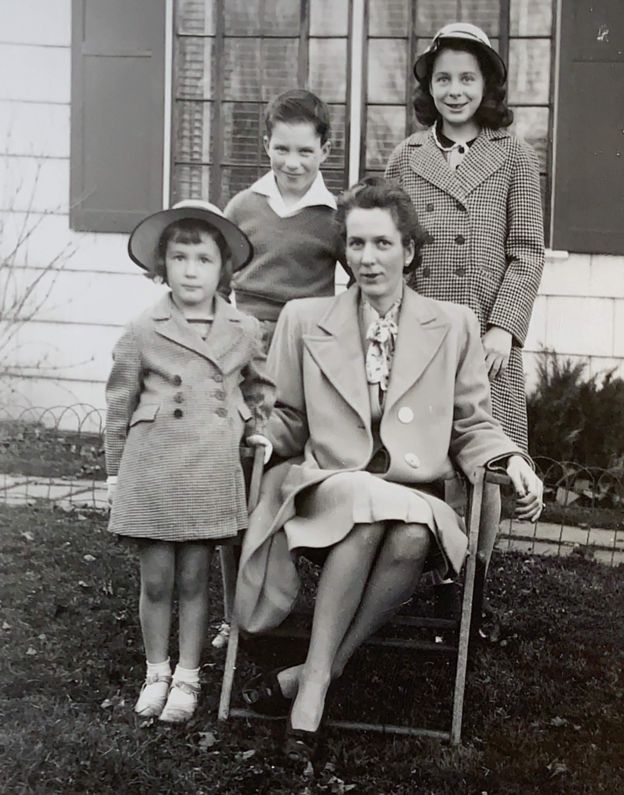
As a young mother Jane used to stop in front of a plaque honouring Mother's Day in Philadelphia and think about Anna. "It's a sort of a poignant story because there's so much love in it," says Jane. "And I think what has come out of it is a nice thing. People do remember their mom, just the way she would have wanted them to."
Jane confesses she has changed her mind about the celebration now. "Many generations later, I've forgotten all the negative things my mother ever said about it, and I get very angry if I don't hear from my children. I want them to honour me and my day," she says.
Jane's younger sister, Emily d'Aulaire, has also found her attitude to Mother's Day altering over time.
"I didn't even really know about it until my own child was in school and came home with a Mother's Day gift," she says. "Our mother used to say something like, 'Every day is Mother's Day.'"
For a long time Emily was sad that Anna's original intention for the day was thwarted, but these days she sends a card to her daughter-in-law, the mother of her grandchildren.
This year many families won't be able to treat their mothers to flowers or a day out and instead will celebrate Mother's Day via a video link, because of the lockdown.
But Antolini thinks Anna and her mother would have been pleased with such pared-down celebrations. She imagines that Mrs Jarvis, a veteran of many epidemics, would resurrect the Mother's Day Clubs to help others. And Anna would be delighted with the lack of shopping opportunities, which she felt clouded the purity of her original vision.
Latest Stories
-
Bawumia’s 8 minutes elite ball that zapped the energy of trigger happy politicians
49 minutes -
It will be a betrayal if National Cathedral saga does not feature in ORAL’s work – Ablakwa
59 minutes -
‘It’s unfortunate we had to protect the public purse from Akufo-Addo’ – Ablakwa on ORAL Team’s mission
2 hours -
Congo lawyers say Apple’s supply chain statement must be verified
2 hours -
Stampede in southwestern Nigerian city causes multiple deaths
3 hours -
Tens of thousands without water in Mayotte as curfew brought in
3 hours -
ORAL: We won’t witch-hunt, we’ll focus on transparency, not revenge – Ablakwa
3 hours -
Attempted robbery: Accused claims he carried cutlass for protection
3 hours -
Excavator operator jailed for stealing
4 hours -
African fans age-shame me for putting on some outfits – Tiwa Savage
4 hours -
Tiwa Savage criticised by female fans for stance on cheating in relationships
4 hours -
Bank of England expected to hold interest rates
4 hours -
Congo river boat sinks killing at least 22
4 hours -
Nigeria approves Shell’s $2.4 billion asset sale to Renaissance
5 hours -
Embattled Liberian speaker questioned by police over parliament fire
6 hours

